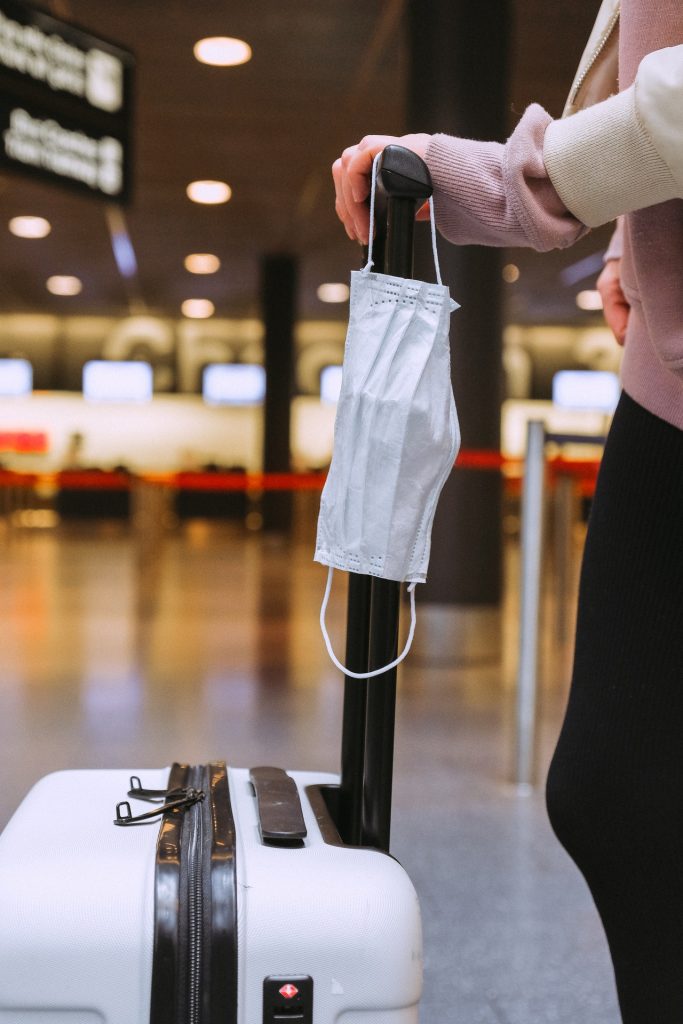News
Some countries impose travel controls to contain Omicron variant

NEW YORK – The newly-discovered Omicron variant of Covid-19 in South Africa has raised fears about the global trajectory of the pandemic, while some countries including the United States have raced to impose travel restrictions on southern African countries.
On Friday, US President Joe Biden announced that his country will impose travel restrictions on eight African countries including South Africa, Botswana, Zimbabwe, Namibia, Lesotho, Eswatini, Mozambique and Malawi as the new coronavirus variant was detected on the continent.
Except for this “precautionary” measure, Biden again urged Americans and people around the world to get vaccinated against the virus.
Australia and Japan were among the latest countries on Saturday to either halt flights to the region or announce mandatory quarantines and screenings.
The Australian states of New South Wales (NSW) and Victoria, as two major entry ports of the country, have introduced 72-hour isolation requirements for all international arrivals as health authorities scramble to sequence for the new Omicron variant in arrivals from southern African countries.
NSW health authorities confirmed on Sunday morning two of 14 arrivals from southern African countries had tested positive for COVID-19 and had begun urgent genomic sequencing for the Omicron variant.
All recent arrivals from nine southern African countries were urged by NSW health authorities to self-isolate for 14 days, while passengers from flights with positive cases would be quarantined in a special health facility.
Despite mounting fears, NSW Premier Dominic Perrottet said the state would stick to its reopening plans “for the moment”.
“This is a reminder that there is a long journey to go, and we think we have always had a fair and balanced approach,” Perrottet told local news outlet Sky News.
The World Health Organization (WHO) said there was preliminary evidence that the variant, which it named Omicron after the Greek letter, was more transmissible than the Delta variant that is currently dominant world-wide, and other virus strains.
2 cases detected in UK
Two cases of the Omicron coronavirus variant have been detected in Britain, British Health Secretary Sajid Javid said Saturday.
He said the cases, detected in Chelmsford and in Nottingham, are “linked” and the two individuals are now self-isolating along with their households while further tests and contact tracing take place.
In a press conference, British Prime Minister Boris Johnson said all travelers entering Britain must take a PCR test by the end of the second day after their arrival, and must self-isolate until they receive a negative test result.
He said rules on face coverings will be tightened up in shops and public transport, adding that these measures are “temporary and precautionary” and will be reviewed in three weeks.
Downing Street have subsequently tweeted: “Face coverings will become compulsory on public transport and in shops. But not including hospitality.”
“There are many things that we just cannot know at this early stage,” Johnson said, noting that it does appear Omicron spreads very rapidly.
He warned that the “extensive mutation…might at least in part reduce the effectiveness of our vaccines”.
The “targeted measures now” will “buy time for our scientists” to know what they are “dealing with”, as well as facilitating more booster jabs in arms and keeping pressure off the National Health Service (NHS), he said.
Meanwhile, Belgium, Israel and Botswana also detected first cases of the new variant.
“Although scientists were still figuring out the exact effects of the variant’s many mutations, its discovery highlights the continued threat posed by an evolving virus to the world’s emergence from the pandemic,” reported The Wall Street Journal on Friday.
US officials have spoken with scientists and leaders in South Africa to learn more about Omicron. The Centers for Disease Control and Prevention (CDC) said on Friday that Omicron hadn’t been identified in the United States, while US stock markets sold off, with the Dow Jones Industrial Average suffering its worst day in a year.
Chilling effect
The WHO labeled Omicron a “variant of concern,” a designation given to variants like Delta that require close scrutiny from public health officials. Preliminary evidence suggested that Omicron may increase the risk of reinfection relative to other variants of concern.
South African researchers identified the first Omicron case on Nov. 9, then reported the variant to the WHO on Wednesday. Scientists are hopeful that they spotted the variant early, since the majority of known cases are still concentrated in southern Africa.
“Scientists are still waiting on lab studies to determine how well coronavirus antibodies — either from natural infection or vaccines — hold up against Omicron. They’re also watching carefully to see how quickly the variant spreads across the globe, particularly in countries with higher vaccination rates,” reported Business Insider on Saturday.
Moderna, BioNTech-Pfizer and Johnson & Johnson all said they’re testing how well their vaccines protect against Omicron.
Merck said on Friday in a final analysis of a clinical trial, its antiviral pill reduced the risk of hospitalization and death among high-risk Covid-19 patients by 30 percent, down from an earlier estimate of 50 percent.
“News of the Omicron variant, which has an unusually high number of mutations, will certainly throw a spanner in the works for the Biden administration as the president struggles with flagging approval ratings and a pessimistic view of the economy,” reported CNN on Friday. “The administration will need to work quickly to get ahead of the new variant.” (Xinhua)





















